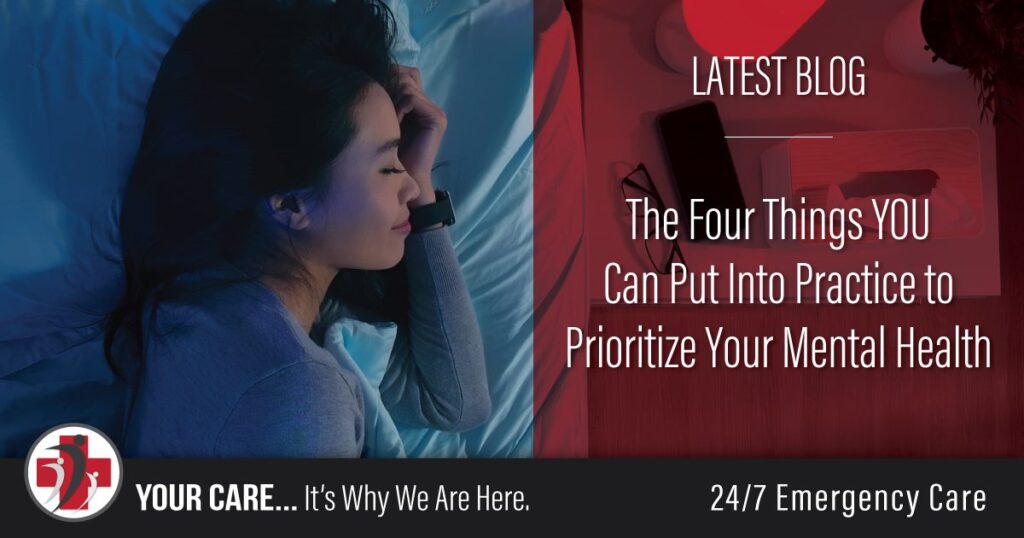Around here we tend to talk a lot about physical health; after all, physical maladies are what we help patients with all day, every day. However, we never want to minimize the importance of prioritizing good mental health, and we regularly provide support for that as well. And in this age when stress, sadness, or anxiety seem to be commonplace, paying attention to mental health is extremely important.
May is Mental Health Awareness Month, and as we wrap up May we want to showcase this important issue. Amazingly, Mental Health Awareness Month has been observed in May in the United States for an impressive 74 years, since 1949. While the stresses on our mental health probably look different from how they were 74 years ago, our country has long realized that paying attention to mental health is important.
Mental health awareness is an important topic, and has a strong presence in social media, various organizations, schools, workplaces, television, and more. In other words, you’re probably hearing about mental health all the time. However, we understand that there’s a big difference between hearing information and putting it into personal practice. And it’s possible you have yet to prioritize your own mental health and take steps to lower your own stress, mitigate your own anxiety or depression, or just simply gain tools to perform mental health maintenance. We’re here for you. We want to offer four easy ways you can address and/or prioritize your mental health.
-
Mind your ZZZs
We know that getting good sleep is a tricky habit to master. There is a huge list of reasons that could prevent someone from sleeping well, or enough (stress, physical discomfort, and environmental disturbances to name a few). However, the hard work to achieve good sleep is worth it. Not getting enough quality sleep can affect your ability to understand the world around you, and make minor stresses seem overwhelming. Plus, there is a link between poor sleep habits and mental health disorders. Be sure to talk to our medical staff if you need extra support with obtaining a healthy amount of sleep. We can go over medication options, holistic solutions, relaxation techniques, and more.
-
Get the right kind of help
It’s our belief that seeking counseling and/or therapy should be commonplace rather than an exception. Even if you’re not experiencing a mental health issue currently, it’s still a great practice to get into. A trained mental health provider can help keep you equipped with tools you can benefit from when things do get hard. And if you are going through a rough patch right now? A therapist can help you process what’s going on in a healthy way, and work towards healing. Speak with our team if you’d like a referral for a mental health provider.
-
Just say no
News flash: not everyone who asks for your time or help needs to GET your time or help. Prioritizing your mental health means being okay with saying no sometimes. If your loved ones truly value you, they’ll appreciate you avoiding burnout and resentment by putting your own rest and schedule first sometimes.
-
Get moving
If you tend to feel better when you exercise, there’s good reason for that. The link between physical activity and emotional wellness is real. Exercise reduces depression and anxiety, and improves self-esteem and social withdrawal. It is also known to improve cognitive function. Exercise promotes the brain and spinal cord to release the feel-good endorphins in the body. Need some ideas for physical activity that’s appropriate for your current age, body type, and fitness level? Ask us at Fountain Hills Medical Center and we’ll get you started off on the right foot.
We’re committed to seeing our patients be their best selves, and that includes physical and mental wellness. If you believe your mental health could be better, or even want to keep your mental wellness at a healthy level, reach out to us here at FHMC. We’ll provide you with the tips, ideas, and resources you need to be your best self.
SOURCES:
- Nami.org
- Columbiapsychiatry.org
- Centerstone.org
- Calm.com
- ncbi.nlm.nih.gov

